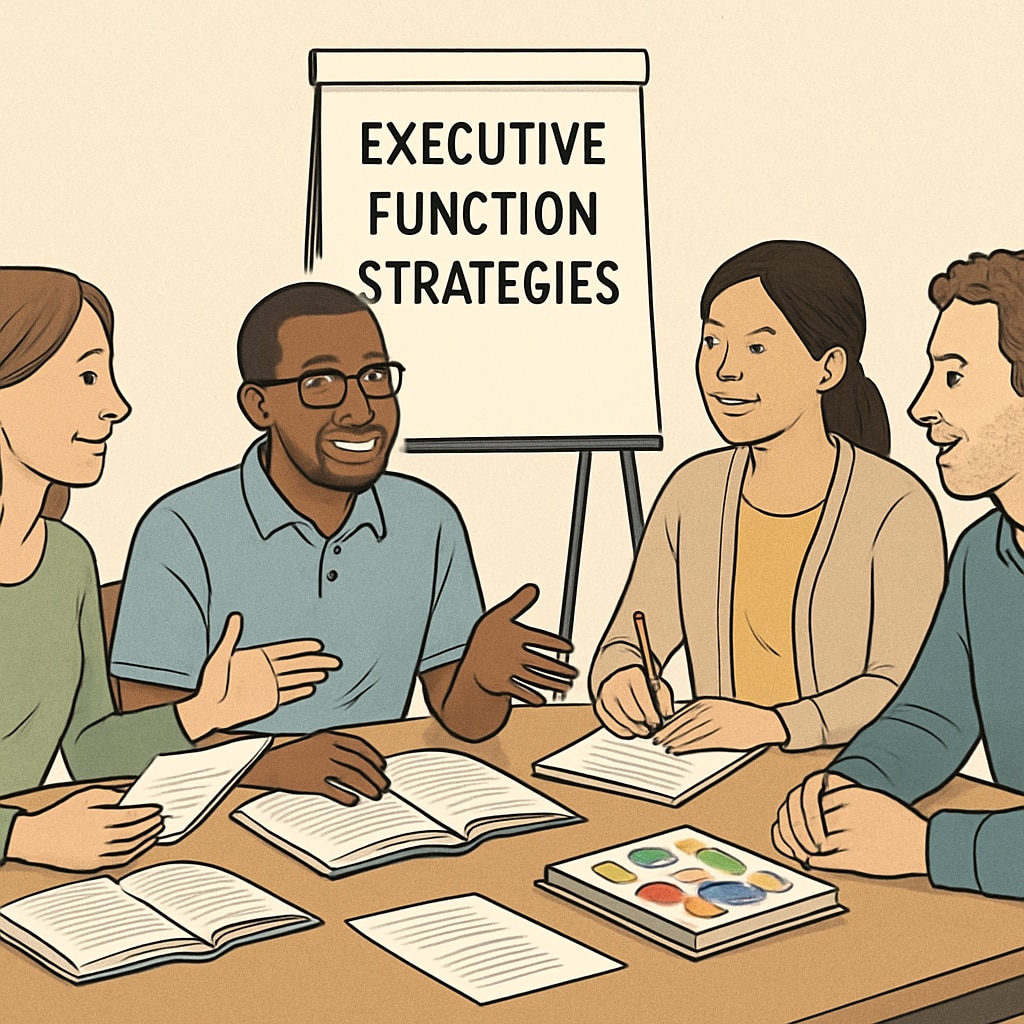Families with children who have ADHD (Attention Deficit Hyperactivity Disorder), autism spectrum disorder, or executive function challenges often find themselves navigating a labyrinth of obstacles. These conditions can make everyday tasks overwhelming and leave parents feeling isolated or unsure of how to help their children flourish. To address these challenges, a summit dedicated to executive function strategies has been designed specifically to equip families with practical tools and guidance to support their children and foster positive growth.
Executive function refers to a set of cognitive skills that include planning, organization, self-regulation, and goal-directed behavior. These skills are pivotal for academic success and daily functioning. However, children with ADHD or autism often struggle in these areas, requiring tailored approaches to meet their unique needs. This summit aims to provide actionable strategies that empower families to turn struggles into opportunities for growth and connection.

Understanding Executive Function Challenges
Executive function challenges manifest in various ways, including difficulty focusing, trouble with time management, and impulsive behaviors. For families raising children with ADHD or autism, understanding these challenges is the first step toward effective intervention. The summit begins by educating parents on the science behind executive function and how it impacts learning and behavior.
Key topics covered include:
- The role of executive function in academic and social development
- How ADHD and autism affect executive function skills
- Identifying strengths and weaknesses in a child’s cognitive profile
By gaining this foundational knowledge, parents can better recognize their child’s needs and implement strategies that align with their unique developmental trajectory.
Practical Strategies for Families
The heart of this summit lies in equipping parents with actionable strategies to support their children. These techniques focus on creating structure, fostering independence, and nurturing emotional resilience. For example:
- Using visual schedules to improve time management
- Breaking tasks into smaller, manageable steps to reduce overwhelm
- Incorporating mindfulness practices to enhance self-regulation
- Encouraging goal-setting and celebrating small victories to build confidence
Interactive workshops allow parents to practice these techniques and adapt them to their family’s routine. The goal is not only to help children thrive but also to reduce parental stress by providing clear and effective solutions.

Building a Supportive Community
One of the most powerful aspects of this summit is the sense of community it fosters. Parents often feel isolated in their journey, but connecting with others who share similar challenges can be transformative. Through group discussions, expert-led panels, and networking opportunities, attendees build relationships that provide emotional support and practical advice.
Additionally, the summit introduces families to professional resources such as therapists, educators, and support groups, ensuring they have ongoing access to assistance after the event. These connections help families feel empowered and less alone in their efforts to support their children.
Transforming Challenges into Opportunities
While raising a child with ADHD, autism, or executive function challenges is undeniably demanding, it also presents unique opportunities for growth—for both the child and the family. This summit emphasizes the importance of celebrating small wins, focusing on strengths, and fostering a positive mindset. With the right tools and support, families can transform challenges into stepping stones toward resilience and success.
For parents seeking to empower their children and themselves, this summit provides a roadmap to navigate the complexities of special education with confidence and hope. As a result, families leave not only with strategies but also with renewed optimism for the future.
Readability guidance: This article uses short, concise paragraphs, lists to summarize key points, and transitions to ensure a smooth flow. The content avoids jargon, focusing on accessible language while maintaining professionalism.


